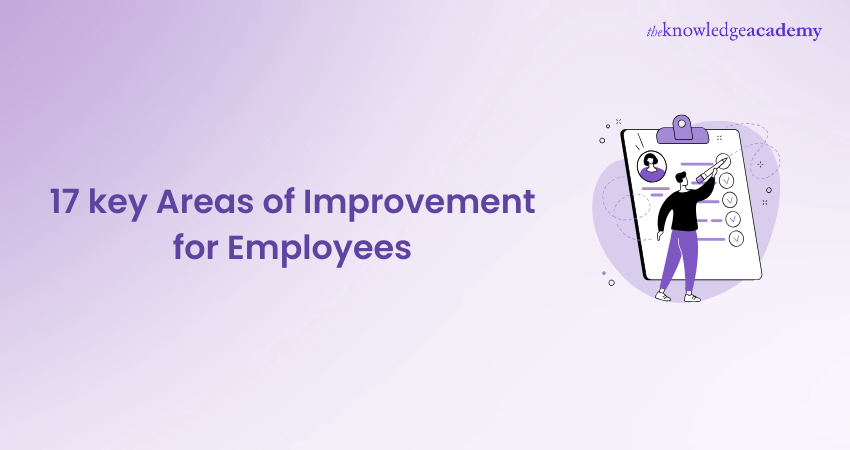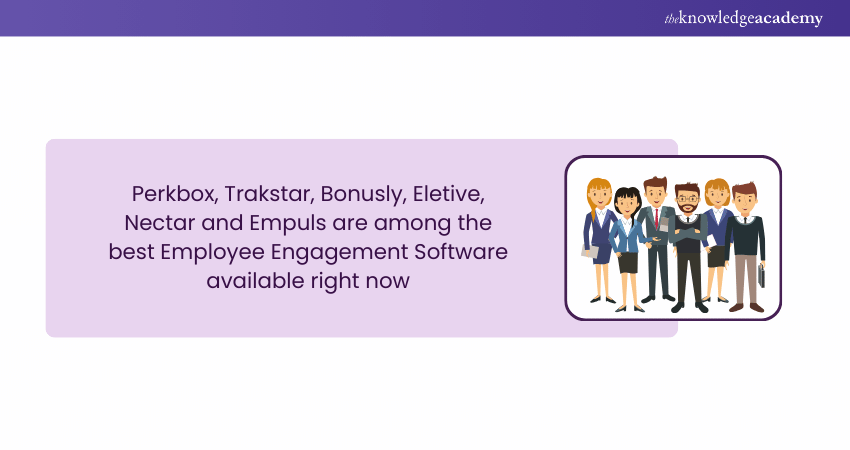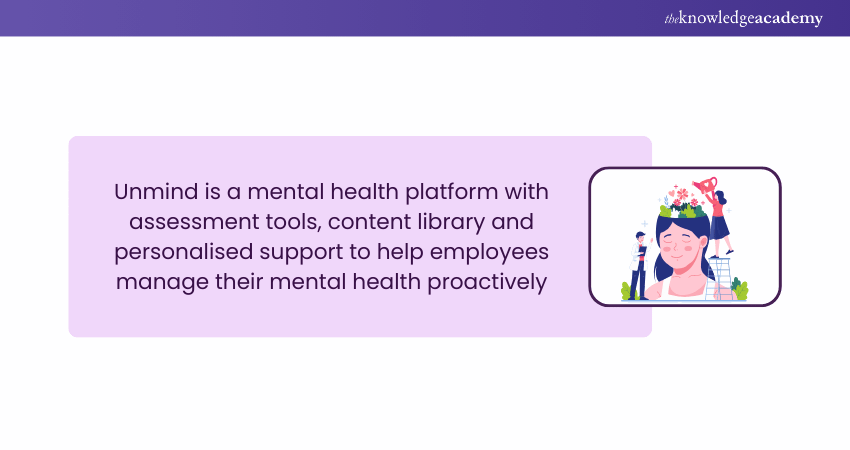We may not have the course you’re looking for. If you enquire or give us a call on + 1-866 272 8822 and speak to our training experts, we may still be able to help with your training requirements.
Training Outcomes Within Your Budget!
We ensure quality, budget-alignment, and timely delivery by our expert instructors.

What transforms a workplace from ordinary to extraordinary? The answer lies in growth. Encouraging both personal and professional growth unlocks employees’ potential, empowering them to excel in their roles and contribute meaningfully to organisational success.
Improvement isn’t just about addressing weaknesses—it’s about uncovering hidden strengths and opening doors to new possibilities. From mastering time management to embracing adaptability, identifying key Areas of Improvement for Employees can turn challenges into opportunities.
In this blog, we explore 17 crucial Areas of Improvement for Employees that can help them develop and thrive, driving their careers and organisations forward. Dive in and discover how to spark true employee greatness!
Table of Contents
1) What are the Key Areas of Improvement for Employees?
a) Improving Time Management
b) Eliminating Interruptions
c) Communication
d) Active Listening
e) Customer Service
f) Organisation
g) Improving Teamwork
h) Managing Stress in the Workplace
i) Leadership Abilities
j) Harbouring Positive Attitude
2) Conclusion
What are the Key Areas of Improvement for Employees?
Here are some more Areas of Improvement for Employees to help them increase their productivity. They are as follows:

Improving Time Management
Improving Time Management helps not only in the timely delivery of outputs but also prevents the employees from experiencing any fatigue due to lengthy working hours. Effective Time Management helps the employees to section out their individual projects into separate compartments throughout the day so that they can equally distribute their time without feeling stuck.
Time Management Tools which can help them to achieve this.
Moreover, poor Time Management leads the employees to lose enthusiasm to work towards their assigned tasks. This puts them behind their intended timeline for the said project. If you are an employer, you can encourage your employees to divide their tasks into several segments so that they can complete the tasks on time and with precision. There are several
Communication
Good communication skills, written, verbal or nonverbal, can help individuals work more effectively, efficiently and productively. This is also good for boosting morale and creating a positive work culture. Ways to improve verbal and nonverbal communication include:
a) Listen carefully to what others say
b) Speak to your colleague face to face and
c) Practice what you want to say
d) Monitor your body language and tone
Active Listening
Active listening is an essential skill for collaboration and communication. Listening to your colleagues, those in leadership, and clients enables you to obtain and deliver critical information. Ways to improve listening skills include:
a) Look people in the eye
b) Remove distractions when talking to someone (such as your phone)
c) Use open, positive body language
d) Ask questions to clarify complex ideas
Customer Service
Excellent customer service is key to a company's reputation and can significantly affect its ability to earn repeat business. Even for those who don't directly work with customers, customer service is an essential skill that helps you work well with colleagues and teams. Ways to improve customer service include:
a) Ask a colleague to practise customer interaction with you
b) Take an online customer service training
c) Shadow a colleague known for giving excellent customer service
d) Ask others for advice on handling challenging customers
Organisation
Being more organised can help you focus and be productive and efficient. Good organisational skills help employees complete their work on time and with minimal stress. Steps to improve organisation may include:
a) Prioritise tasks you need to complete each day
b) Maintain a clean desk to avoid misplacing documents
c) Create electronic filing systems for projects
d) Use a digital organiser

Improving Teamwork
This is one of the major Areas of Improvement for Employees. An employee can alone perform their best; however, that same individual in a team may give a different output. This is where all employees must learn how to collaborate and work on the projects together. Employers can utilise some Team Building Ideas to encourage employees.
Improving teamwork can help the employees bring out the best in each other and motivate each other to perform better. To be better at teamwork, they also need to have exceptional communication skills. Only after proper communication of ideas between team members it is possible that the product or service is delivered in record time with little to no errors. To improve in this area, employees can follow several Team Building Activities.
Managing Stress in the Workplace
Stress is a common thing in the workplace. Employees can get overwhelmed by the stress. This can have an effect on their productivity. Many times, stress can also lead to low self-confidence, which hampers an employee’s capability to produce the same output. Even with a good team and Time Management, stress can make an employee feel incompetent.
There are several team building exercises, which employers can implement for Stress Management when they are working in a team. If you are an employer, then you can also appoint a Stress Management coach, who can help individual employees deal with stress, anxiety, etc., with the help of Stress Management Therapy. It is important that every organisation, as well as the employees, have proper Mental Health Awareness.

Leadership Abilities

Employees who have good leadership qualities are chosen to take up responsibilities for the organisation. There are several important aspects of Leadership, such as good brand image in the market, strong customer loyalty, stakeholder engagement and more. Employees can improve in this area so that product or service deliveries will be smooth. Strong leadership and management help the organisation survive the worst situations. There are several ways employers can motivate and train their employees to be responsible so that they are ready to take on any kind of challenge.
Generally, to cultivate Leadership and Management Skills in employees, there should be a strong work ethic among the employees. Employees with a good work ethic can solve problems without any help, think of creative solutions outside the box, and, most importantly, are able to maintain the mission and vision of the organisation. By encouraging employees and recognising them, you can keep the employees motivated and interested in managerial positions.
Harbouring Positive Attitude
There are problems that employees will face regarding their work, with their colleagues, and even with the management. However, dealing with negative emotions and feelings can be difficult and may foster negative relationships among team members if not handled carefully. If there are any disagreements, then it can be handled in such a way so that there are no negative feelings between employees. This is one of the most important Areas of Improvement for Employees.
This is one of the most important areas that is required to improve for employees to have good productivity. Building trust and faith between team members and employees helps in harbouring a positive attitude towards each other. Any arguments, discrepancies, or any other form of struggle regarding the tasks at hand should be dealt with in such a way that both parties feel heard and justified. Any form of partiality towards any of the parties will prevent forming a positive attitude towards the organisation and the management.
Advance Your Career with Our Business Ethics Course – Sign Up Today and Lead with Integrity!
Adaptability
This is another one of the major areas where employees need to improve. Being adaptable helps them not only to show the organisation that they are worthy of taking responsibility and major roles but also contribute towards their personal development in this present time, where technologies and business operations are changing continuously to keep up with the market demand.
Nowadays, the market demand has become user centric. Hence, to keep at par with the market demand, employees must be adaptable so that they do not lag in delivering this service. They should also be up to date with all the market trends so that they can implement those trends or patterns in their projects or tasks assigned to them. Being adaptable helps the employees figure out creative solutions which will contain the latest market trends and technology.
Improving Discipline and Punctuality
Proper discipline and punctuality keep an individual motivated to work on their projects and assignments. This is also one of the key Areas of Improvement for Employees who struggle with maintaining motivation in their workplace. Being punctual helps in effective Time Management. This quality of punctuality in employees helps them achieve the deadlines assigned to them.
Discipline in the workplace helps in building a good work ethic. This strong work ethic, in turn, helps in building strong leadership qualities. If any employee is aiming to be in any kind of leadership or managerial role, then these two are the most important factors. Even if there are employees who are not aiming to be in different types of organisational roles, they need both discipline and punctuality to deliver optimum performance. This will help Managers identify potential employees and will be able to provide recognition to them in the workplace.
Improve your work ethics with Ethics in Workplace Training – Sign up now!

Interpersonal Skills
Interpersonal Communication Skills are one of the most important factors for employees to look into when they are in their workplace. Having good compassion, empathy, careful choice of words, and honesty helps in building a positive work environment. It also helps in improving relationships between team members and the management.
Being accountable and responsible for their individual work helps in easy recovery if there are any errors and also helps the Managers identify areas if there have to be any changes that have to be made. Having good interpersonal skills helps in collaborating with other departments, and any inter-departmental arguments or misunderstandings can be cleared easily.
Seeking Fedback
Another important area that employees need to be mindful of improving is asking for feedback. If you are an employee in any organisation, always remember to ask for feedback rather than shying away from it. You can ask for feedback from your team leaders, your Managers and even from your colleagues. Remember, receiving feedback helps in your personal as well as professional development.
Asking for feedback will help the employers understand that you are genuinely interested in your project as well as in your organisation. It will also give you a chance to interact more closely on the projects or assignments which are assigned to you with your peers. Taking note of their professional advice and suggestions helps you to learn something new every day. You can take heed of their professional experience and try to imbibe the good qualities in your work ethic. This will also help the management notice your enthusiasm towards your work.
Dedication
Being dedicated helps employees maintain their focus at work. Diligent work helps in producing better and error-free results. It also helps employers notice the employee's performance and will contribute largely towards your appraisals. This will also help the employees remain motivated throughout the day. There are several activities and exercises that help in maintaining dedication throughout, which the employers can implement.
Working with dedication helps both the employees as well as the organisation achieve both short-term and long-term goals. Dedication is also one of the best interpersonal skills that every employee, including the management, should imbibe to provide better output for the organisation.
Master People Management, leadership skills, Employee Engagement and more in our comprehensive Human Resources Courses – Sign up now!
Acquiring New Skills
Employees who have a thirst for knowledge are likely to achieve more goals than the ones who are lacking in this area. The need for an employee to acquire new skills helps them both in their personal and professional development. It also helps employees to become indispensable to the company. The employee can also help the organisation become more up-to-date with the latest technologies.
With the new skills acquired by certain employees, they can, in turn, train the other employees and help them achieve new skills for their professional development. New skills can also open more opportunities in the organisation for the employees who acquire new skills. It becomes easy for employers to identify employees who are capable of taking on more responsibilities for the organisation.
Patience
According to the very famous saying “Patience is a Virtue” by William Langland, every employee must cultivate this necessary quality in them. This not only helps them solve problems and make quick decisions in their personal life but also in their professional life. Patience helps in maintaining professional relationships as it helps the employee to find impartial solutions which will maintain the standard of the organisation.
This is one of the major Areas of Improvement for Employees that they should take care of if they are willing to excel in their careers. If there are any kind of disagreements in the organisation, with the help of patience and rational thinking, it is possible to find any kind of fruitful solution. Employers can encourage employees to be patient with their colleagues to prevent the workplace from becoming negative.
Problem-solving Abilities
Employees who have good problem-solving abilities help the organisation deliver customer service. Since many businesses are now becoming user-centric to cater to their needs, effective and fast problem-solving ability is greatly appreciated by employers. Even if the employee might not have the solution to the problem immediately, they can offer suggestions for those problems. Employers may even find some creative and unique ideas in them.
Before employees should start focusing on improving their problem-solving abilities, they should also focus on voicing out their opinions, but in a controlled manner so as not to hurt the sentiments of their colleagues and the management. Finding solutions from everyday life helps to build the problem-solving abilities of the employee.
Want to learn how to increase Employee Engagement in the workplace? Sign up now for our effective Employee Engagement Training
How can Employers Support Employees in their Improvement Journey?
Employers can provide resources such as training programs, constructive feedback, mentorship opportunities, and, of course, a supportive work culture that encourages personal and career growth.
How do Improvements in These Areas Benefit Organisations?
Employee growth enables higher productivity, better collaboration, and increased innovation which drives overall organisational success.
Conclusion
In conclusion, understanding Areas of Improvement for Employees helps both organisations and employees. Organisations can attain maximum productivity from the employees. On the other hand, employees can detect their areas for improvement so that they can develop both their professional and personal lives.
Join our Employee Relations Training to build stronger teams and improve workplace dynamics.
Frequently Asked Questions

If you face this question in an interview, you can answer along the following lines:
"It's one of my goals to take my career forward and take on a leadership role. So, I'm trying to improve my leadership skills to become an effective communicator by joining a local toastmasters club and signing up for an online business writing course."

Quite often, Areas of Improvement for Employees fall into one of three broad categories. It's important to consider improving planning and organisation skills, management and leadership skills, or communication and interpersonal skills.

The Knowledge Academy takes global learning to new heights, offering over 30,000 online courses across 490+ locations in 220 countries. This expansive reach ensures accessibility and convenience for learners worldwide.
Alongside our diverse Online Course Catalogue, encompassing 19 major categories, we go the extra mile by providing a plethora of free educational Online Resources like News updates, Blogs, videos, webinars, and interview questions. Tailoring learning experiences further, professionals can maximise value with customisable Course Bundles of TKA.

The Knowledge Academy’s Knowledge Pass, a prepaid voucher, adds another layer of flexibility, allowing course bookings over a 12-month period. Join us on a journey where education knows no bounds.

The Knowledge Academy offers various Employee Engagement Courses, including the Employee Relations Training, HR Policy Training and the Business Ethics Training. These courses cater to different skill levels, providing comprehensive insights into What is Equity in the Workplace.
Our Human Resources Blogs cover a range of topics related to Employee Engagement, offering valuable resources, best practices, and industry insights. Whether you are a beginner or looking to advance your Employee Engagement skills, The Knowledge Academy's diverse courses and informative blogs have got you covered.
Upcoming HR Resources – Learn about Human Resources Batches & Dates
Date
 Employee Engagement Training
Employee Engagement Training
Fri 17th Jan 2025
Fri 21st Feb 2025
Fri 4th Apr 2025
Fri 6th Jun 2025
Fri 29th Aug 2025
Fri 24th Oct 2025
Fri 26th Dec 2025







 Top Rated Course
Top Rated Course



 If you wish to make any changes to your course, please
If you wish to make any changes to your course, please


